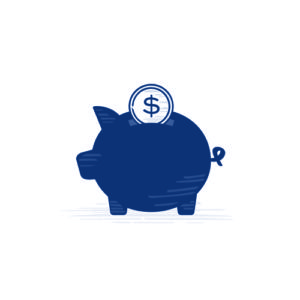Details Are Part of Our Difference
Embracing the Evidence at Anheuser-Busch – Mid 1980s
529 Best Practices
David Booth on How to Choose an Advisor
The One Minute Audio Clip You Need to Hear
You Can Watch The Movie in Your Home
Remember our movie event in 2023? We hosted an in-person viewing of the documentary created by Dimensional (the trailblazing firm we have partnered with since our inception) titled Tune Out the Noise. They engaged Academy Award-winning filmmaker Errol Morris to make this film. It is about the birth of modern finance and its impact on money management and investing.
Told through the stories of 15 people involved, the film captures how finance became a science and challenged traditional investing methods. It chronicles how this shift led to the invention of index funds, the founding of Dimensional, and the evolution of client-focused advice—all of which have ultimately benefited investors worldwide.
We invite you to watch the documentary before it is more broadly available. It is a feature-length film with a running time of 88 minutes, and we highly recommend watching it at home on your favorite television, especially with family or friends.
Here is a link and access code to stream it online now through June 1:
Website: Tune Out the Noise film
Access code: MARKETSWORK
Feel free to share the website and access code with those who might be interested.
We hope the film makes you feel even more confident and proud to work with a firm that digs into science over guesswork to give you the best odds of financial success. We also hope it can open even more people’s eyes to a better way to invest.
Picking Up Pennies – Volume 6

Welcome to the sixth installment of Picking Up Pennies. Last month, we discussed reducing how often we trade by constructing holistic portfolios with fewer funds and not auto-reinvesting the dividends from those funds. We want to control trading and use the dividends to rebalance the portfolio as needed. Reducing trading reduces trading costs and taxes owed. Although trading often realizes taxes, there are methods of reducing taxes when you trade. This month, we will discuss how we minimize taxes when we trade and why we sometimes trade intentionally to reduce your tax burden.
- Volume 1 – Keep Cash Balances Low (Better Chance for Higher Returns)
- Volume 2 – Asset Location (Reduces Taxes)
- Volume 3 – Using ETFs (Reduces Taxes)
- Volume 4 – Trading ETFs in Competition (Reduces Trading Costs)
- Volume 5 – Number of Funds and Not Auto-Reinvesting Dividends (Reduces Trading Costs)
- Volume 6 – Tax Lots and Tax Loss Harvesting (Reduces Taxes)
- Volume 7 – Summary (Total Impact)
Tax Lots
Whenever you sell an investment, you hold the power to decide which “tax lot” to sell. A tax lot refers to a specific security purchase at a particular price and time. If you bought one share of Apple stock yearly for ten years, you would have ten different tax lots for Apple. One lot for each time you bought Apple. Each year, when you buy Apple, you buy the stock at a different price. This means that the gain and subsequent tax bill for each share of Apple will be different. When you sell one of those ten shares of Apple you own, you have the authority to decide which share of Apple to sell, as each one has a different tax consequence.
The default at most custodians/investment platforms is First-in-First-out (FIFO). When you sell one share, they assume you will want to sell the oldest share you bought. Often, this is not a tax-optimal strategy. Instead, the optimal approach is to choose the share with the lowest tax burden.
Figuring out which lot has the lowest tax burden is not always straightforward. You need to factor in things like wash sales and long vs short-term capital gain treatment. While we will not dive deep into capital gain tax law in this post, rest assured, whenever we trade, we analyze the tax burden of every lot across every investment you have to minimize the tax impact to you. This allows you to keep more of your invested money and earn a higher after-tax return.
Tax Loss Harvesting
Another key advantage of focusing on individual tax lots is that it allows us to implement tax loss harvesting effectively. Tax loss harvesting involves strategically selling investments that have experienced losses. Since trading is costly, we are generally not searching for trades to place daily. We believe in taking the long view and holding diversified low-cost investments. However, every day, we look at every tax lot in your portfolio for opportunities to harvest losses. By selling individual tax lots at a loss, we can create and bank a tax asset for you: a tax loss. These losses can offset gains from other trades, allow us to rebalance the portfolio without a tax hit, or offset up to $3,000 of income each year. This strategy allows us to reduce your tax bill and realign your portfolio toward your long-term investment objectives.
Whenever we sell a position for tax loss harvesting, we immediately buy a different approved investment to ensure that you remain fully invested as your Investment Policy Statement would direct. We don’t want you to miss out on market returns to realize a tax loss. Most of the time, we will buy a security with a similar exposure to what we just sold to avoid “wash sale” rules, which, if violated, would negate the benefit of creating the loss in the first place. However, that is not always the case. We don’t want a blind tax loss harvesting strategy that does the same thing for everyone. We want to buy whatever asset class is the most underweight. Thus, each client and their situation will be treated uniquely based on their circumstances.
We optimize our trading based on prior considerations and consultation with each client’s tax advisor so that we know and understand the parameters we should trade in. Further, by leveraging the insights gained from examining individual tax lots and implementing tax loss harvesting, investors can navigate the complexities of the tax landscape while maximizing their after-tax investment returns. We’re committed to treating each client uniquely and executing this strategy daily to pick up as many pennies as possible for our clients.
This information is educational and does not intend to make an offer for the sale of any specific securities, investments, or strategies. Investments involve risk and, past performance is not indicative of future performance. Return will be reduced by advisory fees and any other expenses incurred in the management of a client’s account. Consult with a qualified financial adviser before implementing any investment strategy.
Welcome, Jonesy!
 We are pleased to announce the addition of Jonesy Chauvot to our team. We have known Jonesy through her work at two of our favorite partner firms – Dimensional Fund Advisors and Focus Financial Partners. We are honored that she selected Hill Investment Group as the ideal team to join.
We are pleased to announce the addition of Jonesy Chauvot to our team. We have known Jonesy through her work at two of our favorite partner firms – Dimensional Fund Advisors and Focus Financial Partners. We are honored that she selected Hill Investment Group as the ideal team to join.
You may not see or hear directly from Jonesy in the next few years, but she’ll work backstage on your behalf in both our operations and support areas.
Fun fact: Jonesy was a Division 1 pole vaulter at the University of Texas. We aren’t sure how that will play into her work at Hill, but we hope she helps us reach new heights.


